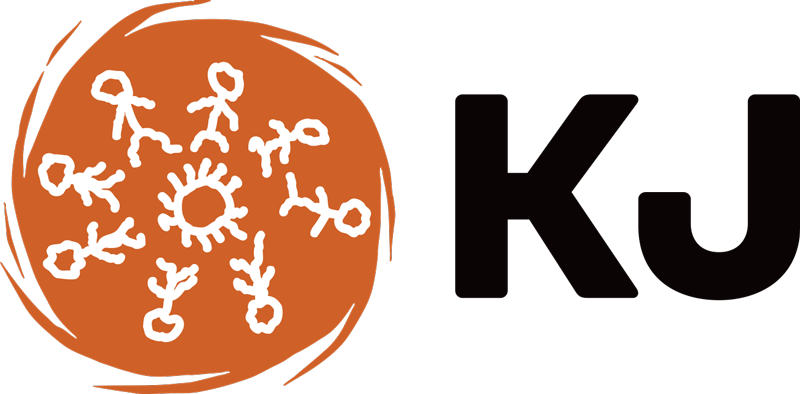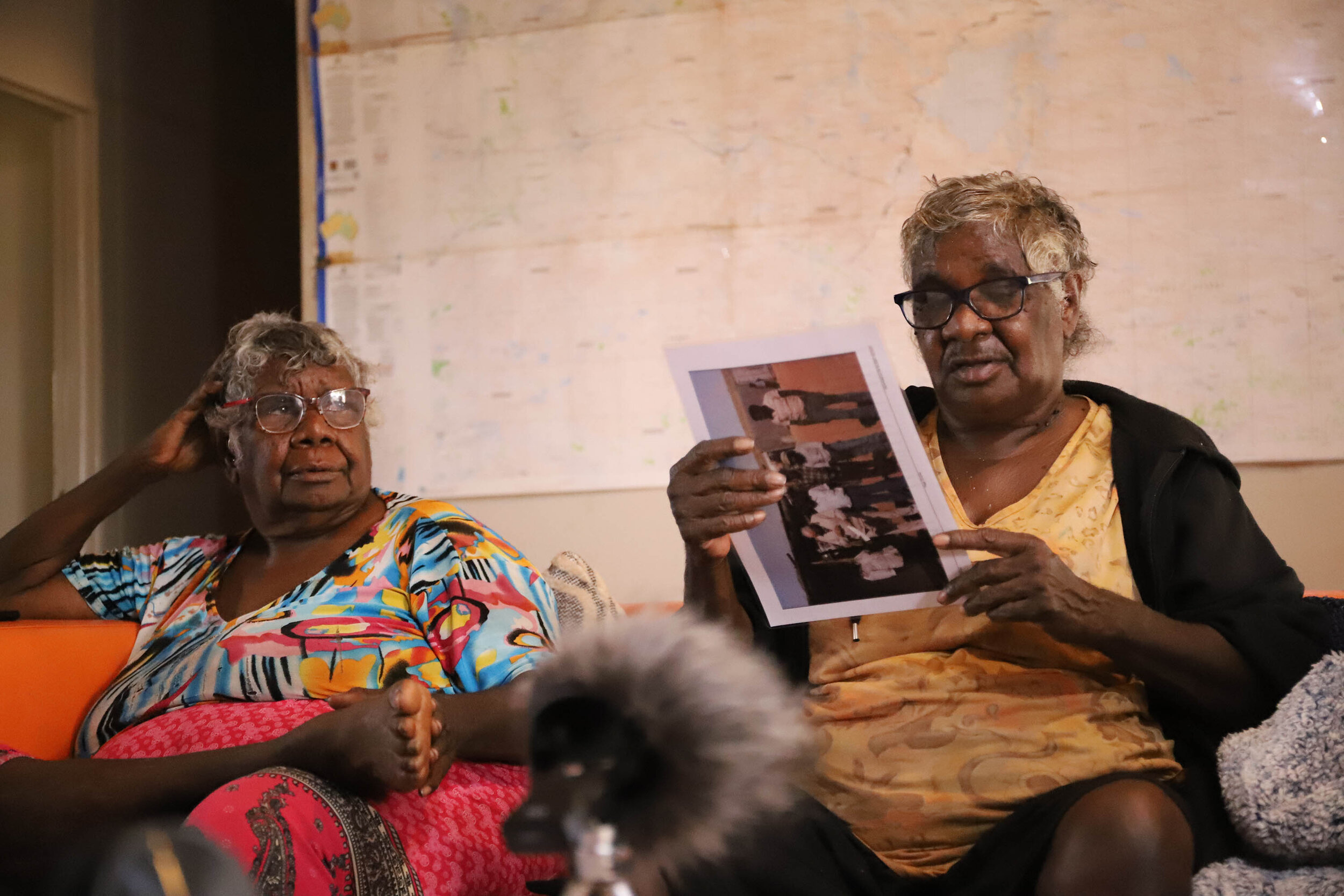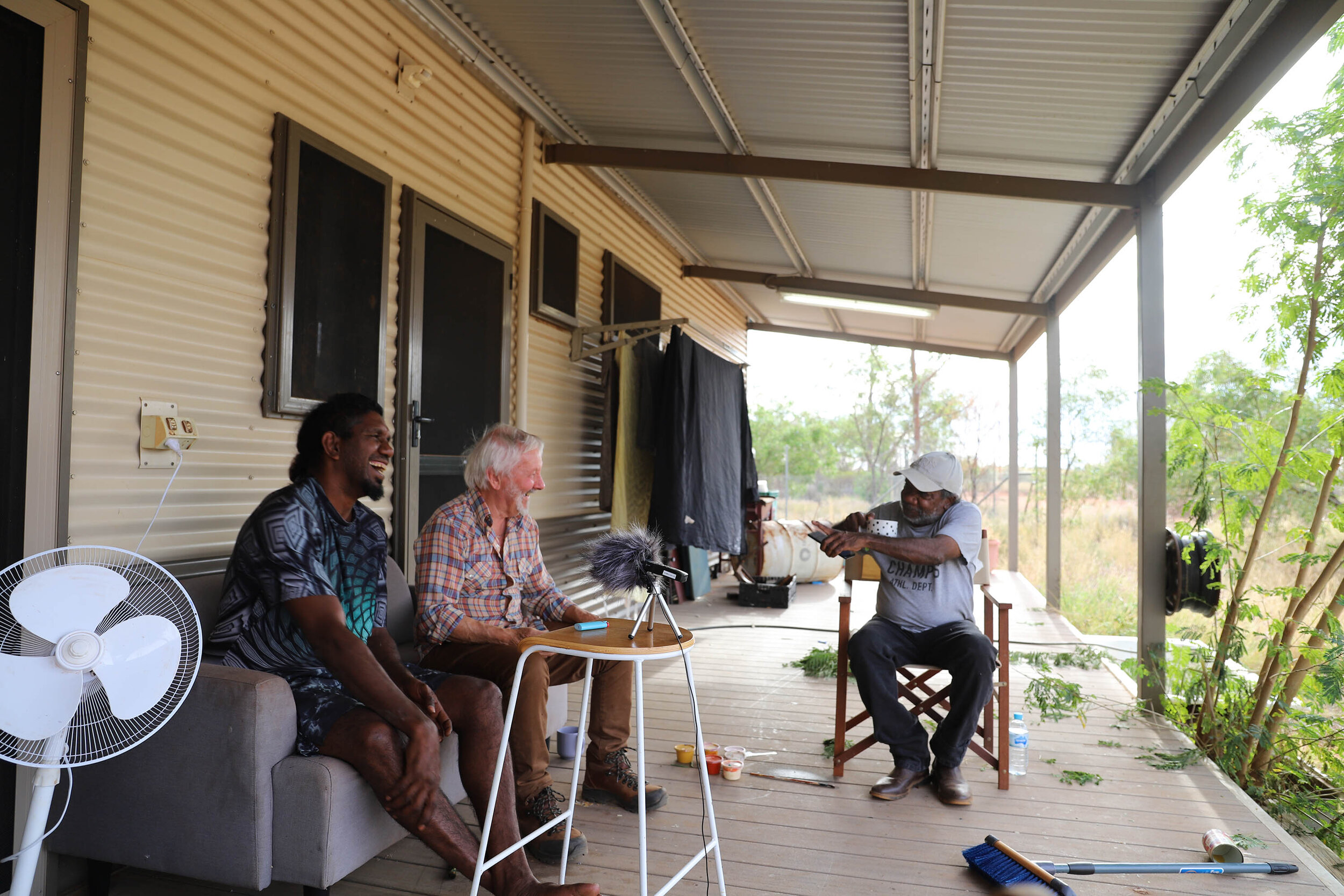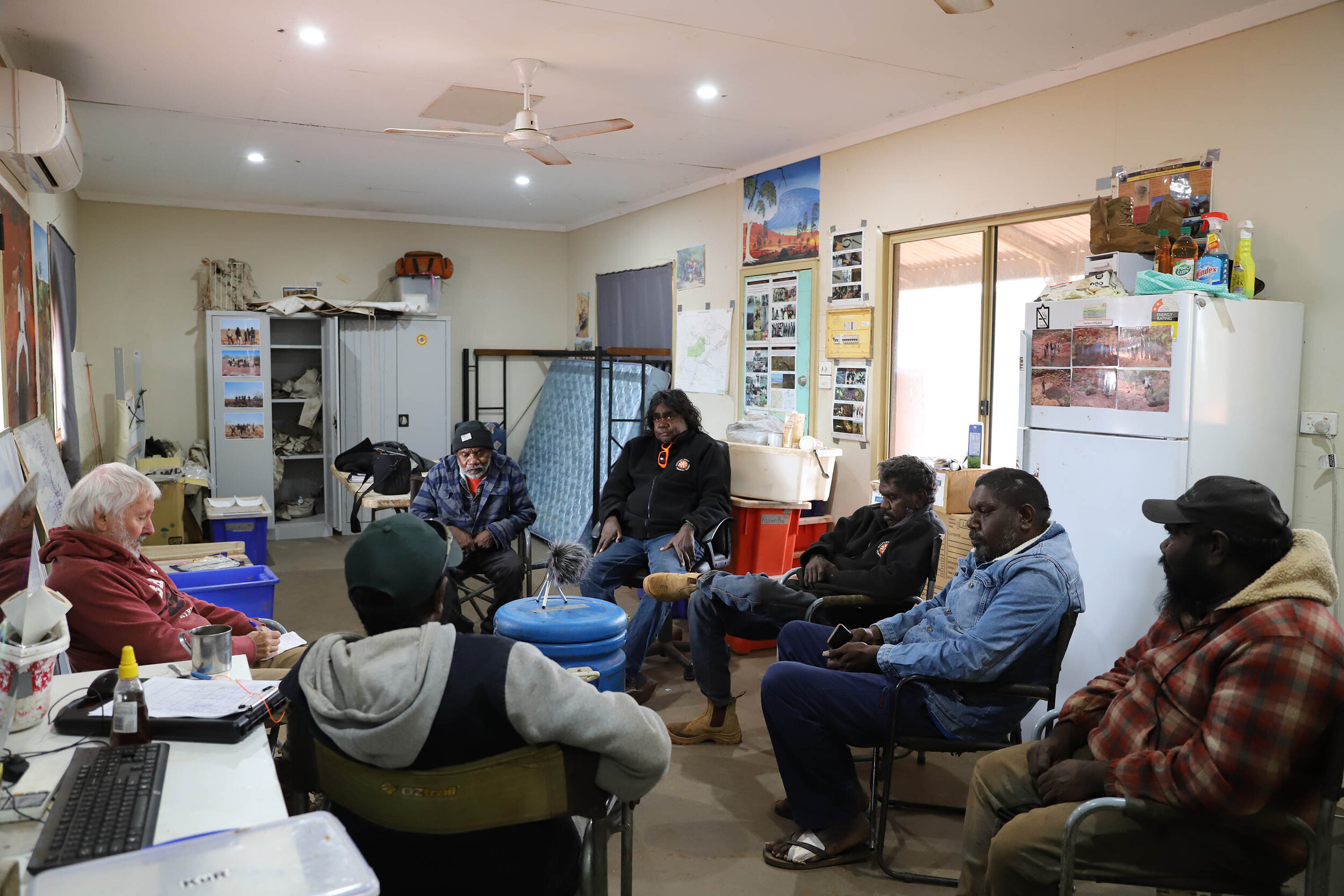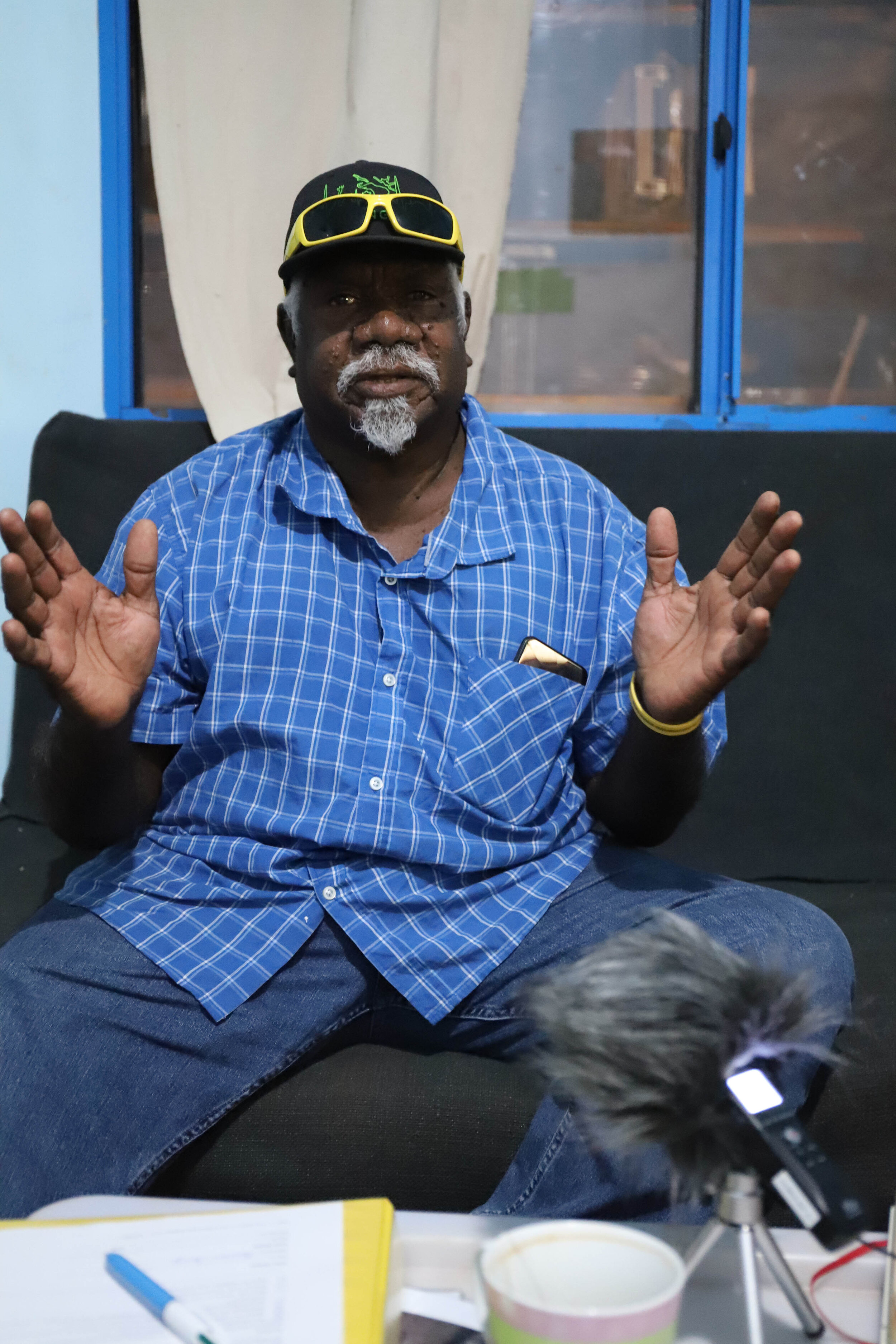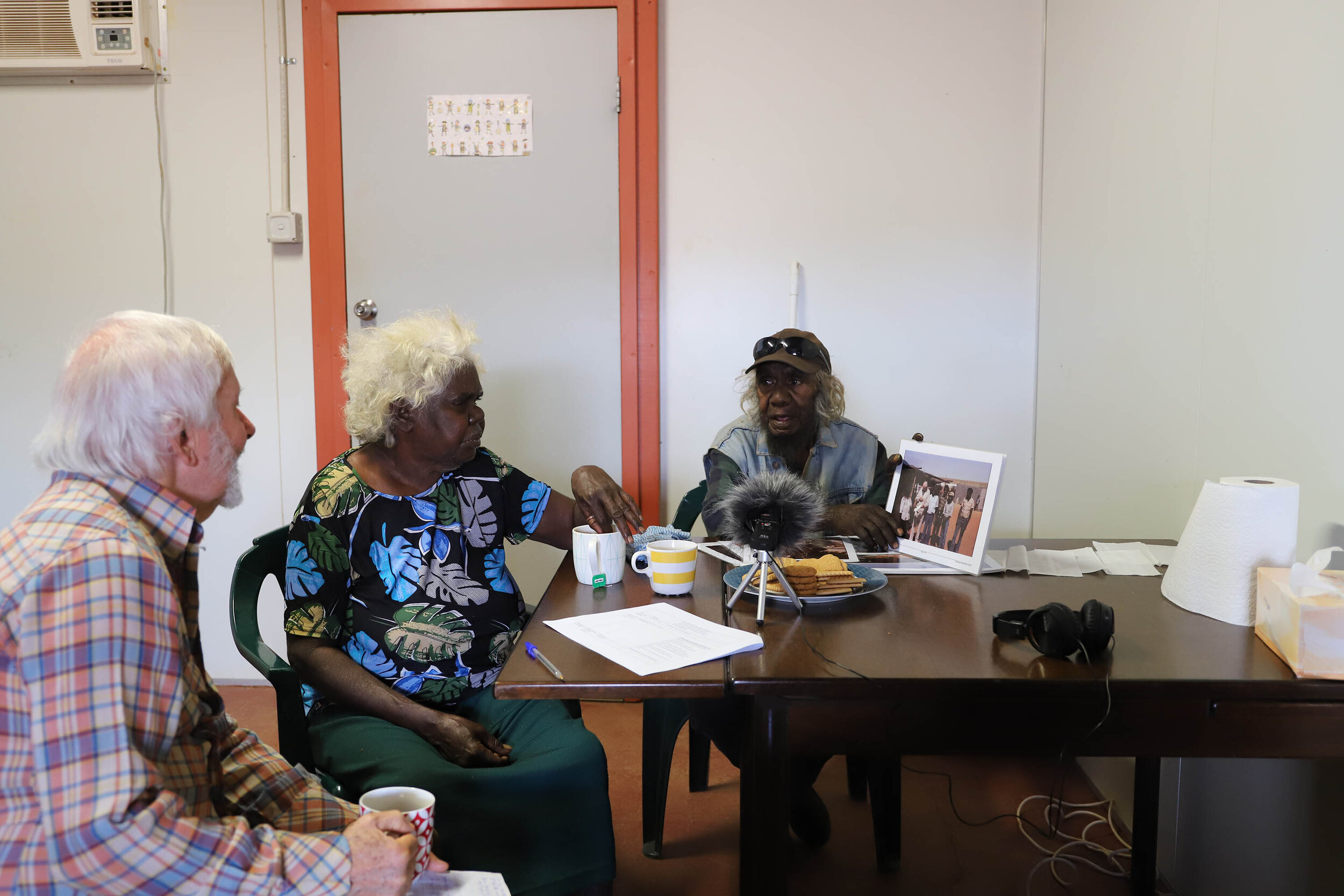Desert Histories & Stories Captured
KJ’s Community Histories Project have visited with Martu in Jigalong, Punmu, Kunawarritji, Parnngurr, Newman and Hedland. Their focus is on recording stories and histories from the Homelands Movement during the 1980s, when Martu first decided to move away from towns and go back and live in the desert on their country.
Martu talked about why they decided to start up the desert communities and why it is important to keep living there. Clifton Girgiba lived mostly between Jigalong and Parnngurr and talked to KJ about why people moved out to Parnngurr, what it was like living there and why people stayed, the changes he saw in the community, from living in humpies through to the first buildings and houses.
“…that's why this country, we need to protect it, to live on it, to live longer. If you dig it up, it's like digging up a soul. You know, that's what I learn from my elders, and I'm trying to tell them, you can't, when you dig all this up, where are you gonna live?” says Clifton.
“We do have hopes, you know… I've seen the world, and the world that we live in is so bad. And, for us it's a hope, because once, you know I create this program (Wama Wangka) for Martu, that's hope. We've got interpreters that struggle and work so hard, that's hope. You got language team, you got waru team, you got art, you got all this Martu stuff, it's coming. They all coming.”
Currently, Traditional Owners across Australia struggle with a lot of health, cultural, social, community and economic issues, but there is still hope for the future.
“This project is a chance for Martu to tell their story about what it was like living in the communities in the early days, how it changed from living in humpies and tents, to building the first schools, shops and houses, and what it’s like living in community now,” says Mitch Keyer, KJ’s Community Histories Support Officer.
“It is important to record Martu knowledge and stories for future generations to know their history, their ngurra (camp), their language, their family, and where they come from. KJ looks after these stories for Martu, who can contact the KJ Office to get a copy of their story, and any other stories they want to hear.”
Due to the COVID-19 pandemic preventing a lot of on-country work over the last two years, other forms of traditional transfer of knowledge such as story recording have become even more important.
The Community Histories Project is supported through the State Government’s Royalties for Regions Program as part of the Regional Arts and Cultural Investment Program, and Regional Arts WA’s COVID-resilience grants, as well as in-kind support from the Social and Emotional Wellbeing Program run by Puntukurnu Aboriginal Medical Services (PAMS).
📸; sisters Lizzie and Brenda Sailor recording in Jigalong and looking at old photos; Clifton Girgiba talks with John Sherwood and Desmond Taylor in Punmu; the Kunawarritji rangers talk about their memories growing up in community when it just started up.
